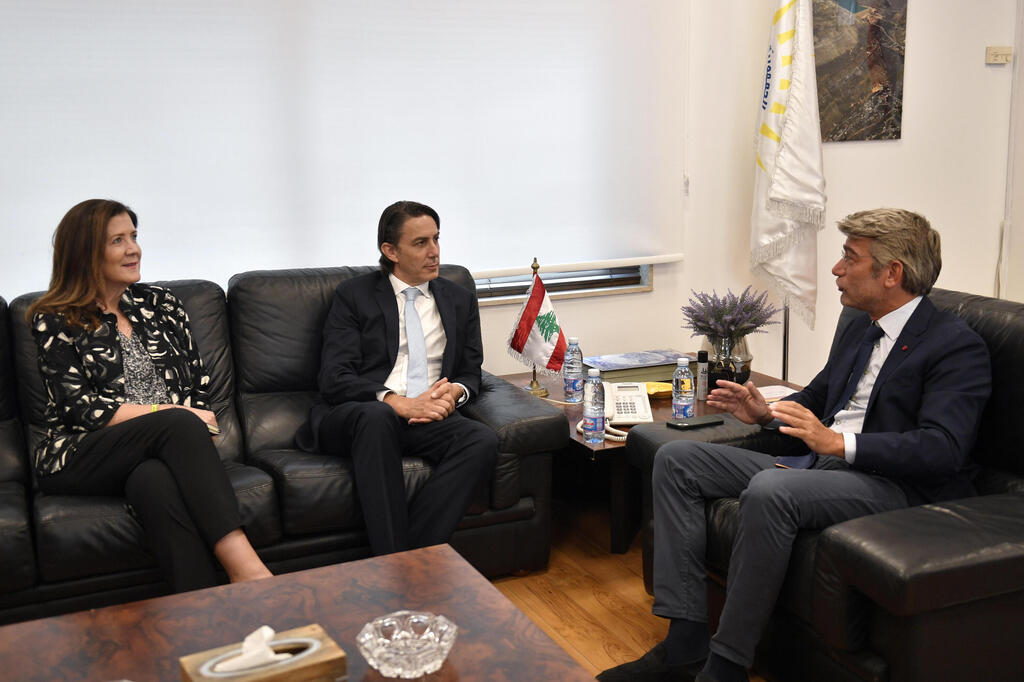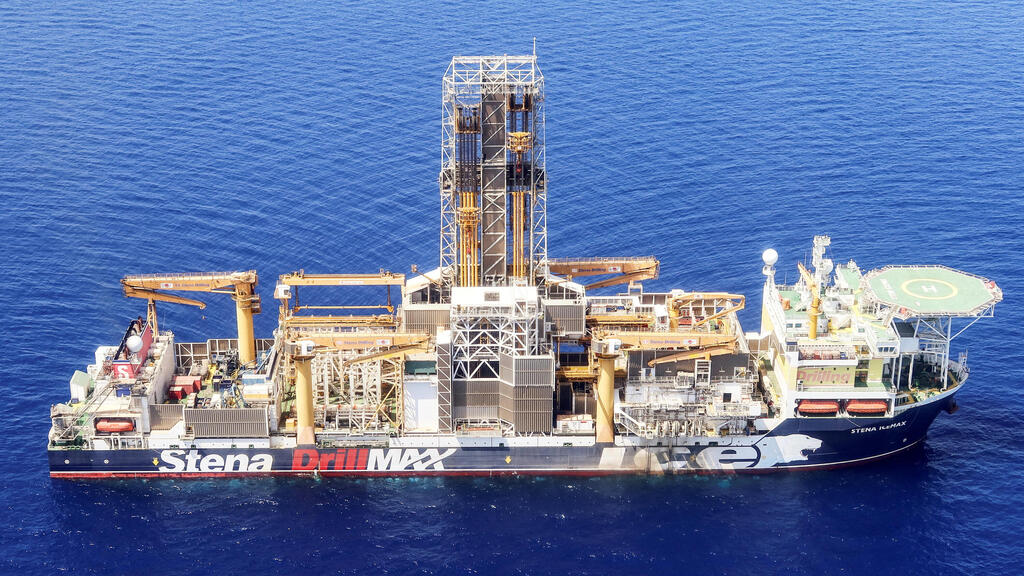The U.S. official mediating a maritime border dispute between Lebanon and Israel said on Monday he remained optimistic about making progress towards a deal and looked forward to returning to the region to make a "final arrangement".
Amos Hochstein made the comments after meeting Lebanon's top leaders at the presidential palace, as he presses efforts to clinch a rare agreement between enemy states that should allow both to develop offshore energy resources.
3 View gallery


Lebanese Energy Minister Walid Fayad (R) US Senior Advisor for Energy Security Amos Hochstein (C) and US Ambassador to Lebanon Dorothy Shea (L) in Beirut on Sunday
(Photo: EPA)
"I remain optimistic that we can make continuous progress as we have over the last several weeks and I look forward to being able to come back to the region to make the final arrangement," Hochtein said.
There was no immediate comment from Lebanese officials. Prime Minister Najib Mikati gave a thumbs up as he emerged from the meeting that also included President Michel Aoun and Parliament Speaker Nabih Berri.
The United States in 2020 stepped up long-running efforts to mediate an agreement between Israel and Lebanon in indirect talks.
Tensions over the issue escalated in June when a ship arrived in an area deemed part of the disputed zone by Lebanon to begin developing a field for Israel.
Israel said the area in question - Karish - was firmly in its exclusive economic zone.
The heavily armed Lebanese group Hezbollah group - which is backed by Iran has fought numerous conflicts with Israel - has threatened military action if Lebanon is prevented from exploiting what it deems to be its offshore rights.
But it has also said it will respect the decision of the Lebanese government.
Lebanon and Israel are located in the Levant Basin, where a number of big sub-sea gas fields have been discovered since 2009. Israel already produces and exports gas.



